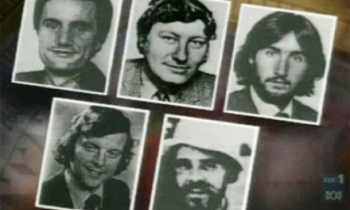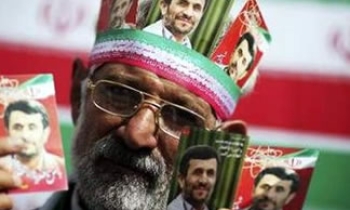The editor of The Straits Times (ST) yesterday said this newspaper had done all it could to protect the identity of unnamed sources in its reports.
Mr Han Fook Kwang added that although two journalists -- including one from ST -- recently complied with a court order to name their source, there should not be a "chilling effect" on the ability of Singapore journalists to obtain information.
He was speaking to 50 journalists, journalism students, media industry observers and public industry professionals at a panel discussion titled "When Keeping a Source Secret isn't a Reporter's Privilege."
Other speakers at the forum, organised by the Singapore Press Club and the Nanyang Technological University's Wee Kim Wee School of Communication and Information, included the school's dean Dr Ang Peng Hwa, former editor-in-chief of Singapore Press Holdings' (SPH) English and Malay Newspapers Division Peter Lim and lawyer Peter Low. NTU's Dr Cherian George was the forum's moderator.
Dr Ang and Mr Low kicked off the forum by asking whether journalists across the world were protected under the so-called "newspaper rule" -- the principle which governs applications against newspapers to disclose their anonymous sources.
Their answer: It depends on the value of such information in individual cases.
Following their presentations, Mr Han explained that journalists and newspapers depended on the "richness" of their sources to do their work well.
While named sources are preferred in practice, there are times when journalists have no choice but to offer anonymity in exchange for information from the source. This, he said, was why such sources had to be "protected well, or this source of information would dry up."
He then referred to a recent case here, which some observers have said might gag individuals who would otherwise give information to journalists.
It started when broking firm Tullet Prebon sued its rival BGC International for $66.4 million for allegedly poaching Prebon staff. The two firms settled out of court for an unspecified amount.
News agency Reuters, citing an unnamed source, put this amount at about a fifth of the amount Prebon asked for. ST and The Business Times (BT), also quoting unnamed sources, cited different amounts in their reports which ran the following day.
BGC claimed breach of confidentiality over the settlement terms, and has applied to set aside the amount it has to pay Prebon. It also asked both newspapers to name their sources. Both papers refused.
BGC then took the two papers' publisher, SPH, to the High Court to obtain 12 items of information, including the source of the leak. SPH fought back, and succeeded in cutting the items down to three, including the name of the source.
Ordered by the court to disclose this, the two journalists complied. Reuters, also sued by Prebon, had to disclose its source too.
Refusing to comply with such a court order opens a journalist to a fine or even jail time as determined by the judge.
But paying the fine or serving a jail term does not get a journalist off the hook. The court is likely to call him back and ask him to comply.
Mr Han said this was the first time SPH had lost such a case in his 18 years working at the paper.
But, he added, he was hopeful that sources would not shy away from speaking to Singapore journalists.
As for The Straits Times, it would continue resisting all bids to reveal its sources, because "protecting the confidentiality of our sources is critically important to the journalism we practise."









